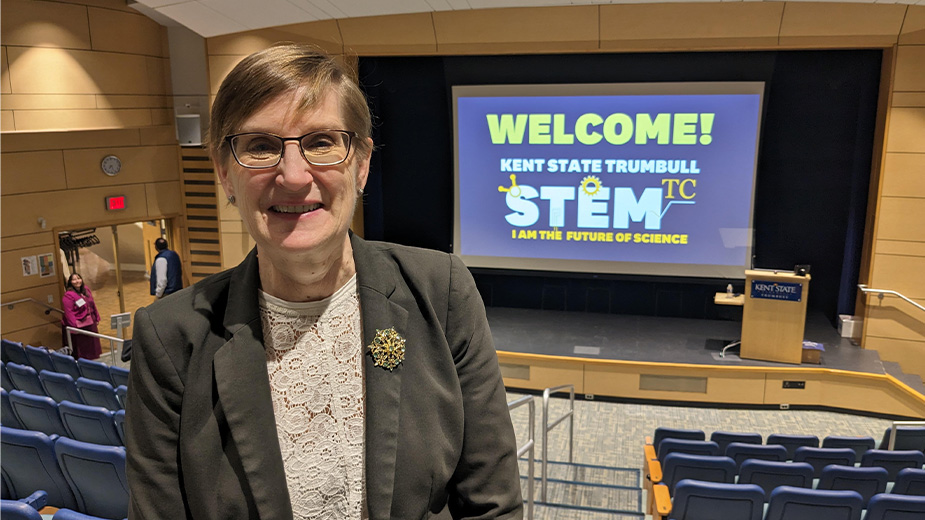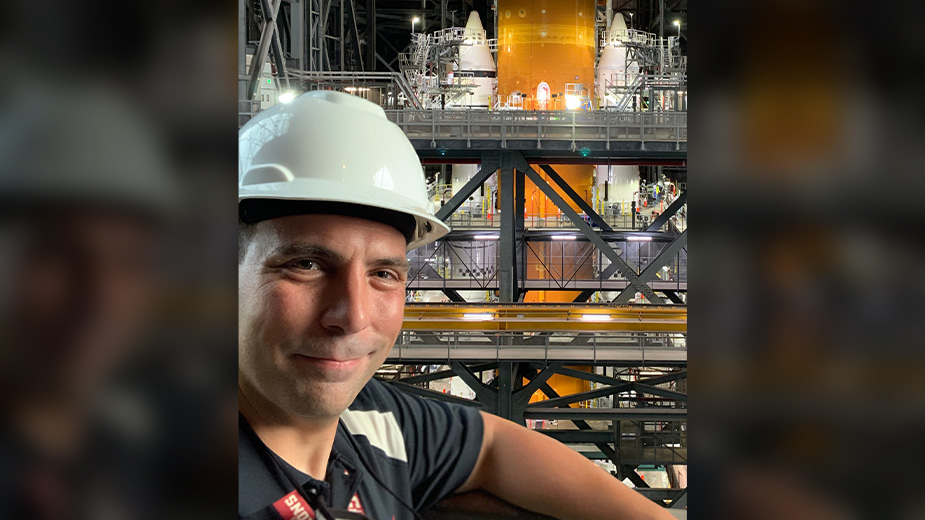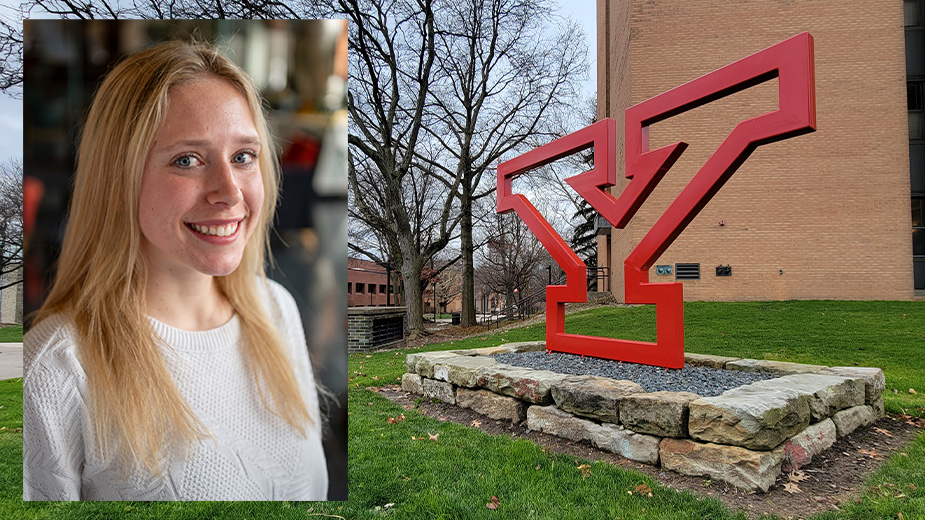Conference Urges Female Students to Consider STEM Careers
WARREN, Ohio – While more women are pursuing degrees and careers in the STEM fields than ever, the U.S. Census Bureau in 2019 showed only 27% of those working in the STEM jobs are women.
When teenage girls are making decisions about what their next step will be after high school, those who don’t have a mentor or know any women who work in STEM can find it that much harder to choose the STEM path for themselves.
“We know that women are not as strongly represented in many of the science, technology, engineering and math areas as they should be, and we really want to help those women see their choices,” said Peggy Shadduck, vice president for regional campuses and dean of the College of Applied and Technical Studies at Kent State University at Trumbull.
She adds many times that can be caused by societal expectations about professions.
“The reality is both women and men are very capable of doing all different kinds of things, and they should be following the pathways that give them both the most joy in their lives and provide the contributions that they want to provide to society,” Shadduck said.
About 200 high school junior and sophomore girls attending STEM TC at the KSU at Trumbull campus got the opportunity to meet more than 30 women in the STEM fields Friday and hear about just how many ways they can use their own interests toward rewarding careers.
“We call it STEM TC,” Shadduck said. “It’s an opportunity for young women who are interested in pursuing any kind of a STEM career to go deeper into those interests and see some opportunities they might have, explore both their own interests and then things that they might not have been aware of before – learn more about where they can go with their life and their career.”
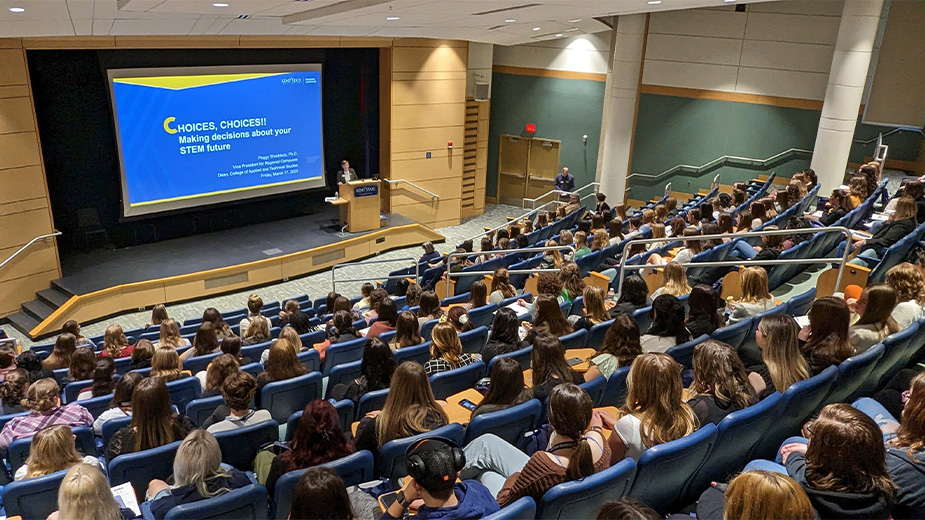
As the opening speaker of the conference, Shadduck explained the importance of exploring the variety of careers available to them. While chemistry, biology and physics are the basics, Shadduck said there are specialties branching from their understanding of those subjects that can lead to a variety of fields.
“You have to love what you do,” Shadduck told the students. “If you’re not getting personal satisfaction from what you are doing, you are in the wrong career. … You want to get up in the morning and you want to be ready to say, ‘Yep, I might have some big challenges at work today, but I’m ready to go.”
While emphasizing the importance of choosing a career that gives them energy, Shadduck also suggested students consider other factors when making career decisions. For instance, do they enjoy developing new knowledge or applying it? Thinking or working hands-on? Days with less or more variety? Do they work well alone or with a team? Do they want more or less income?
As an example of the difference between two important careers, Shadduck talked about being a garbage collector compared with a doctor, noting both are vitally important to human health. But she challenged the girls to consider which career would be more personally satisfying.
Women in many STEM fields talked about how their own careers provide them with energy and how they keep going, even when something is difficult.
In break-out sessions, students got an opportunity to meet and hear directly from women working in STEM fields, including health care, criminal intelligence, veterinarian technology, pharmacy, chemistry, physics, engineering, radiology and mathematics. Within those sessions, the speakers talked about what they do and what others who study the same things they did can do.
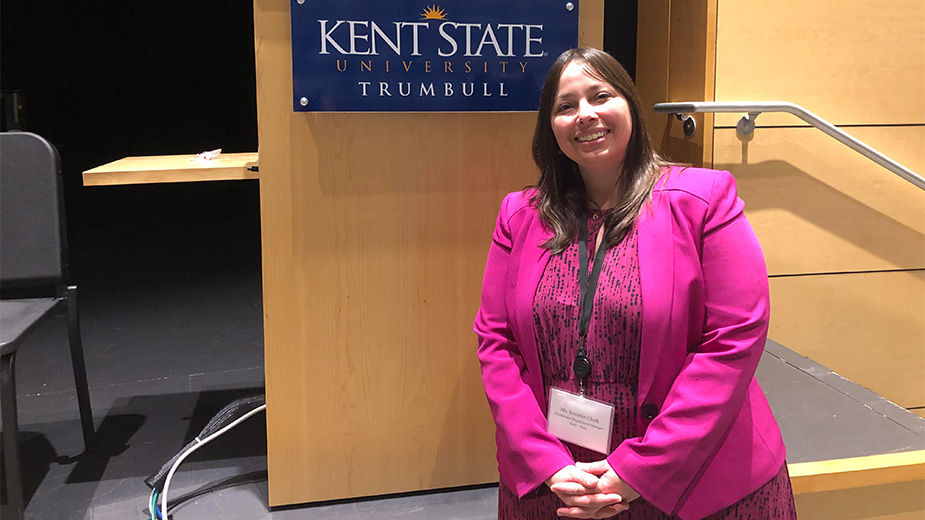
At the end of the day, students heard from Jennifer Clark, a production department manager with Intel, which is creating the “Silicon Heartland,” a chip manufacturing complex under construction in the New Albany area that will help to resolve innovation and supply chain shortages in the U.S.
Clark provided students with yet another list of jobs – possible careers they can enter to join her company. Intel has set goals to have the same percentage of women in its workforce as the percentage of women in the population.
That is going to require more girls and women embracing STEM careers in the future and feeling like they belong in these professions.
During question-and-answer sessions with six graduate students who are studying a variety of STEM subjects, including chemistry, neuroscience, aerospace engineering and molecular biology, two of them admitted they considered starting a coffee shop during moments of doubt when a class or program got tough.
But both explained to the girls the importance of persevering and getting a degree, even during those moments of doubt.
“Just know you belong here,” said Kristin Sobie, who is studying for her doctorate at KSU.
STEM is still male dominated, but women can still love science, mathematics and engineering just as much as the next student, she said.
Pictured at top: Peggy Shadduck, vice president for regional campuses and dean of the College of Applied and Technical Studies at Kent State University at Trumbull.
Copyright 2024 The Business Journal, Youngstown, Ohio.
